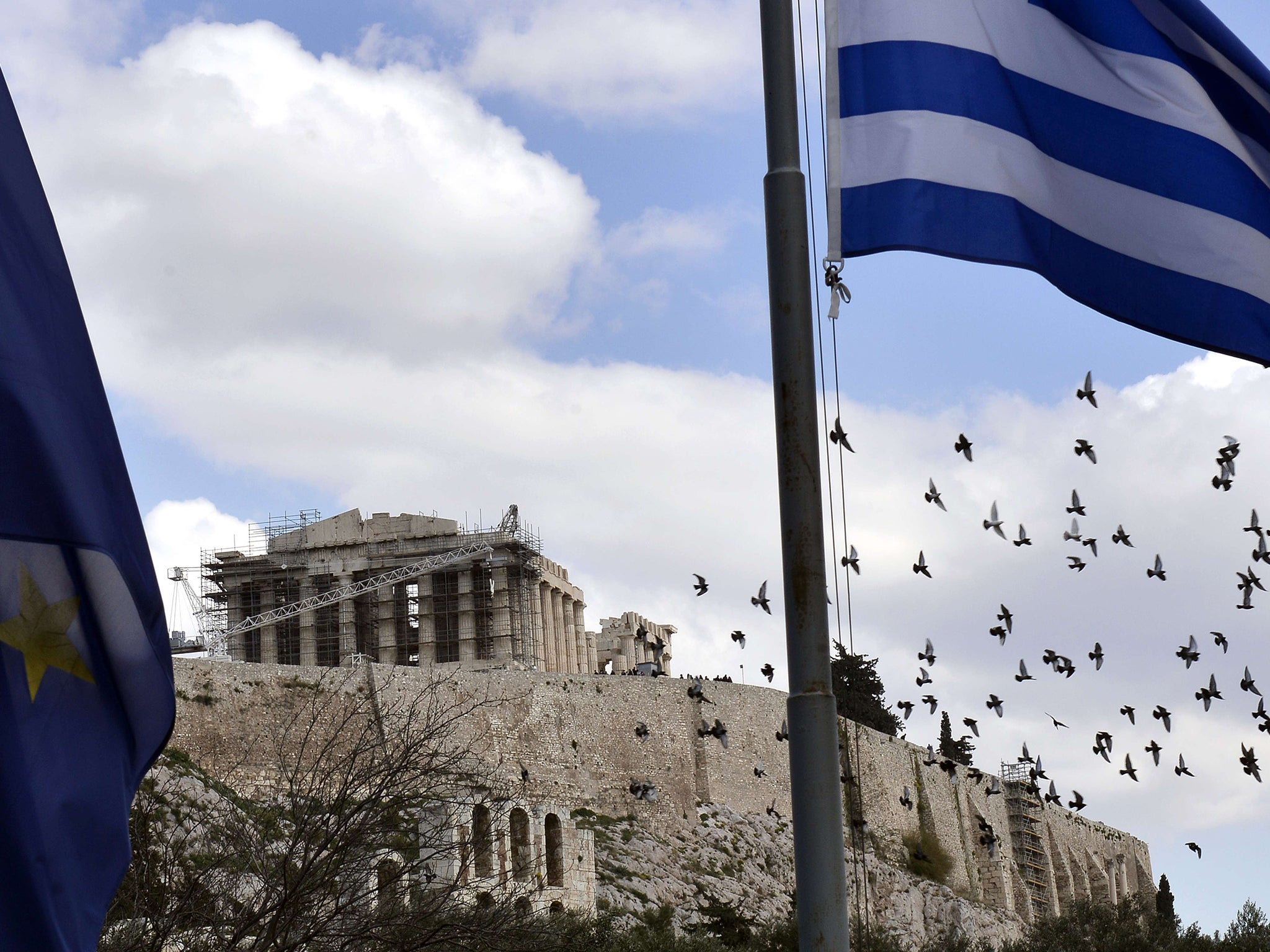Greece debt crisis explained: A history of just how the country landed itself in such a mess
Alexis Tsipras has urged Greeks to vote 'No' in the upcoming referendum

Your support helps us to tell the story
From reproductive rights to climate change to Big Tech, The Independent is on the ground when the story is developing. Whether it's investigating the financials of Elon Musk's pro-Trump PAC or producing our latest documentary, 'The A Word', which shines a light on the American women fighting for reproductive rights, we know how important it is to parse out the facts from the messaging.
At such a critical moment in US history, we need reporters on the ground. Your donation allows us to keep sending journalists to speak to both sides of the story.
The Independent is trusted by Americans across the entire political spectrum. And unlike many other quality news outlets, we choose not to lock Americans out of our reporting and analysis with paywalls. We believe quality journalism should be available to everyone, paid for by those who can afford it.
Your support makes all the difference.Greece heads to the polls tomorrow in essence to decide whether or not to stay in the Eurozone or follow charismatic Prime Minister Alexis Tsipras out of the EU.
But what got the country into the mess in the first place?
The last 100 years
Some newspapers have pointed to Greece’s history as a cause for alarm. The country endured an awful occupation under German troops during WWII. This was nothing to the civil war that erupted following the end of the occupation, as communists and government troops tore the country apart. A government victory in 1949 left Greece economically wrecked scarred and politically deeply polarised. These divisions have lingered on with a formal accord over the civil war only reached in the 1980s when many exiled communists returned home.
The recent history
Greece has had a tricky time with its finances. In the 1990s it consistently ran significant budget deficits while using the Drachma. As a result of this economic mismanagement it joined the Euro in 2001, rather than 1999 like many other EU nations.
The boom years
Shortly after joining the single currency, Greece enjoyed a period of growth (2001-2007). However, economist and analysts have retrospectively labelled this boom as “unsustainable,” pointing out that Greece (very broadly speaking) profited off the cheap loans available from the EU.
2008 crash
This house of cards came tumbling down with the financial crash of 2008. Like many other countries in the EU Greece was seriously affected, but it was unable to climb out of the hole as it had in the past by printing more currency (thus boosting the economy) as the Euro was controlled by the European Central Bank (ECB). Unemployment spiralled to 28 per cent.
The first bailout
In 2010, the Troika (ECB, the International Monetary Fund and the European Commission) started handing Greece loans in exchange for spending cuts and tax hikes. This did not go down well in Greece although the economy did pick up. A second later bailout brought the total amount given to Greece roughly £169 billion.
Up to the present
Mr Tsipras’s meteoric rise came on the back of increasing Greek dissatisfaction with the status quo as dictated by the Troika. Already disliked in Greece (where anger over Germany’s behaviour in WWII is a cause of lingering resentment) the demands only exacerbated tensions as unemployment remained at 25 per cent and debt at 18 per cent of the nation’s GDP.
Current negotiations
Following the election of Mr Tsipras’s party Syrizia, the Greek government has been engaged in torturous talks with EU leaders over a number of issues, including: pensions, labour market reforms, the civil service and the budget surplus.
Tsipras and his bullish finance minister Yannis Varoufakis are engaged in a terrifying game of chicken with EU leaders. Both men hope European leaders will capitulate to their demands out of fear of losing Greece from the EU.
However, after the 2008 and 2010 bailout, many international corporations pulled their money from the country with debt now held by rich EU nations and not private banks.
Although it is impossible to predict what will happen should a Grexit occur, some believe that even German chancellor Angela Merkel, and Spanish and Irish leaders, are ready to walk away from Greece unless they are prepared to enact serious reforms.
Where is all the debt relief and bailout money going?
Although it sounds as if Greece has done well out of the Troika (and in many respects it has) much of the emergency funding from the IMF et al ending up paying off Greece’s international loans, rather than being routed back into the still beleaguered economy.
Added to this, Greek taxation is a mess (there are six different bands and the wealthiest band of shipping is often referred to as a “tax-free zone”) and over 133 separate pension funds. Syrizia also promised to rehire more than 13,000 civil servants (cut by past governments) and 15,000 state broadcast workers.
The other problem is that when Greece did cut some of its spending, the EU and ECB asked for a reduction in wages rather than a cut in spending. So – for example – while the military budget remains intact, soldiers have seen their wages fall by 40 per cent. Their experience is replicated across other public sector fields – notably in nurses and doctors.
Why is the referendum so important?
It is the first one since 1974, when the ruling military junta collapsed. The Greek people will decide whether to stay or leave the Eurozone – and no one is quite sure what the effect of that decision may be.
For the latest on the situation in Greece, read this explainer on the referendum and this opinion piece on the situation in Greece right now.
Join our commenting forum
Join thought-provoking conversations, follow other Independent readers and see their replies
Comments